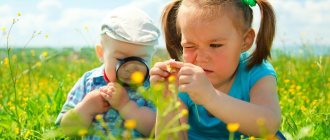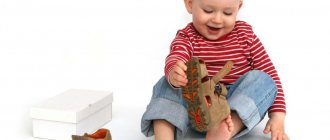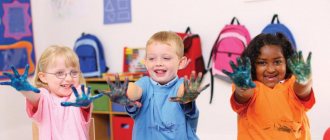Consultation for parents: “Healthy children - in a healthy family”
Topic: “ Healthy children in a healthy family ”
(Consultation for parents)
Prepared by psychologist: Evmushkova O.Yu.
Consultation for parents “Healthy children in a healthy family”
Every person associates the idea of happiness with family. Family is a support, a fortress, the beginning of everything. This is the child’s first team, a natural environment where the foundations of the child’s future personality and health are laid. In preschool childhood, the foundation of a child’s health is laid, intensive growth and development occurs, basic movements, posture, as well as the necessary skills and habits are formed, basic physical qualities are acquired, character traits are developed, without which a healthy lifestyle is impossible.
Prolonged stay in unfavorable conditions causes overstrain of the body's adaptive capabilities and leads to depletion of the immune system. Chronic diseases arise.
The increase in the number of diseases is associated not only with the socio-ecological situation, but also with the very lifestyle of the child’s family, which largely depends on family traditions and the nature of the motor regime.
Today it is important for us, adults, to form and maintain an interest in improving the health of both ourselves and our children. Parents are the first teachers. You are obliged to lay the foundations for the physical, moral and intellectual development of the child’s personality. Being healthy is a natural human desire. Health means not only the absence of disease, but also mental and social well-being.
What can
parents to introduce their children to a healthy lifestyle ?
It is necessary to actively use healing natural environmental factors:
clean water, ultraviolet rays of sunlight, clean air, phytoncidal properties of plants, since the natural forces of nature are familiar components of the environment and are necessary for the life of the body.
A child needs a calm, friendly psychological climate in
the family .
Quarrels in the presence of a child in some cases contribute to the development of neurosis in him, and in others aggravate existing disorders of the nervous system. All this significantly reduces the protective capabilities of the child’s body. Let's smile more and give joy to each other!
We must not only protect the child’s body from harmful influences, but also create conditions that help increase the child’s body’s defenses and performance. And the important thing here is the daily routine.
Properly organized daily routine
- this is a daily routine that optimally combines the period of wakefulness and sleep of children during the day, satisfying their needs for food, activity, rest, physical activity, etc. In addition, the regimen disciplines children, promotes the formation of many useful skills, and accustoms them to a certain rhythm.
Walk
is one of the essential components of the regime. This is the most effective type of rest; it well restores the functional resources of the body, reduced during activity, and, first of all, performance. Staying in the air helps increase the body's resistance and hardens it. After an active walk, the child’s appetite and sleep always normalize.
Dream
, is an equally important part of the daily routine, which is especially necessary for weakened children.
It is important that the baby
falls asleep at the same time (both day and night) Thus, the child’s home routine should be a continuation of the daycare routine and on weekends.
Nutritious food
– inclusion in the diet of foods rich in vitamins A, B, C and D, mineral salts (calcium, phosphorus, iron, magnesium, copper, and protein).
A game
– leading activity in preschool age. The better a child plays role-playing games, the more successful he will be in school. While a child’s psyche is developing, he must play. Without play, children develop a feeling of fear, lethargy and passivity. Play is a leading human need.
serious consequences for
health , so children should never be left alone, unattended.
Children are very inquisitive and try to imitate us adults in everything. They can turn on electric heaters and love to play with small objects. Remember, the child’s health is in your hands!
Remember, the child’s health is in your hands!
Consultation for parents about healthy lifestyle
Consultation for parents “About health seriously”
Preschool age is one of the critical periods in a child’s life. At this time, higher nervous activity is actively formed, mobility and strength of nervous processes increase, which can lead to exhaustion of the baby. Parents and caregivers often note changes in the baby’s mood, increased irritability, fatigue and inattention. Preschoolers often show signs of neurotic reactions: they constantly twist their hair, bite their nails, make erratic movements - jumping and swaying, and do not fall asleep for a long time.
At this age, a “deep” restructuring of metabolism occurs, which is why the baby is more often exposed to childhood infections. The preschool period is characterized by an increased risk of the formation and manifestation of chronic diseases and all kinds of allergic reactions, especially in children who are often ill. However, even a healthy preschool child needs care and careful care from adults.
Conventionally, preschool age is divided into three periods, each of which has its own characteristics that must be taken into account when forming the right lifestyle.
Children 3-4 years old, who are of primary preschool age, understand what a disease is, but cannot characterize the concept of “health”. Therefore, children have practically no attitude towards a healthy lifestyle yet. However, this does not mean that it is not worth having conversations on this topic, putting the simplest rules for maintaining health and the basics of developing a healthy lifestyle into small, unintelligent heads.
In middle preschool age, children imagine health as “not a disease.” A negative attitude towards diseases based on their own experience is deposited in their memory. The child begins to realize the threat from the external environment (“don’t run through puddles - you’ll get sick”, “don’t eat ice cream on the street - you’ll catch a cold”). But the child still cannot explain what “being healthy” means. Health for him is something abstract.
Children of older preschool age have somewhat more experience, thanks to which their attitude towards health and a healthy lifestyle changes significantly. The child still correlates health with diseases, but he already clearly identifies the threat both from the environment and from his own actions (“don’t eat a dirty apple,” “don’t take food with unwashed hands”). Educational work in the form of a conversation on the topic of a healthy lifestyle helps older preschoolers relate the concept of “health” with basic hygiene rules.
A child begins to realize the connection between physical education and health promotion closer to 5-6 years of age. However, the physical component is important for the formation of a healthy lifestyle at earlier stages of life.
Charging and hardening.
Daily morning exercises stimulate the activity of the baby’s entire body, improve metabolism and tone the muscular system. Moreover, physical exercise disciplines and develops the baby’s cognitive abilities. In addition to studying at home, outdoor games are recommended.
Hardening plays an important role in strengthening the health of preschool children and creating a healthy lifestyle. The main rules are gradualism and systematicity. In addition, you should definitely take into account the general condition of the baby and his physical development. Having decided to harden their child, parents should positively influence the child himself, regularly holding conversations about how such activities have a beneficial effect on health.
Basics of hygiene.
Compliance with hygiene rules is especially important when creating a healthy lifestyle for preschool children. Useful sanitary and hygienic skills should be developed at an early age, and certain knowledge about this will help the child to be more conscious of his own health.
Consolidating basic hygiene skills in a child will be more successful if parents show him by example how necessary this is. The main goal is that hygiene procedures should become an internal need of the child.
To keep their bodies clean, preschoolers need to wash themselves at least 2 times a week using baby shower gel or mild soap. Hands must be washed before eating, after walking or visiting the toilet, and feet - every day before going to bed. You should wash your face with cold water in the morning and evening.
Dental care is an important condition for maintaining the health of preschoolers. Usually, by the age of 3, the baby has erupted all twenty milk teeth, and starting from the age of five, they are gradually replaced by permanent ones. Insufficient care of children's baby teeth can lead to caries, which subsequently spreads to permanent teeth. Experts recommend teaching your child to brush their teeth using toothpaste from the age of three.
Proper nutrition
Nutrition is one of the main factors that constantly influence the development of a baby’s body. In preschool age, balanced nutrition is of no small importance, as it helps improve health, strengthen the physical and spiritual strength of the child, prevents the occurrence of diseases, and promotes the formation of a healthy lifestyle.
Proper nutrition for preschoolers should be:
— benign (food is not allowed to contain pathogenic microorganisms and harmful impurities);
— complete (contain the required amount of minerals, vitamins, proteins, fats, carbohydrates);
— varied (the menu should contain products of plant and animal origin);
- sufficient in calorie content and volume - it is necessary that the food consumed causes a feeling of satiety in the child, gives him energy and provides material for the development and growth of his body.
Daily regime
A solid daily routine for preschoolers is one of the main factors in the formation of a healthy lifestyle. The baby quickly gets used to the proposed routine and reacts favorably to it. Moreover, the younger the baby, the easier it is to accustom him to a given time frame.
You can be creative when creating a preschooler's schedule and use visual aids (drawings, tables and colorful posters) that will help the baby better remember the sequence of feedings, walks and sleep. When drawing up a regimen, it is imperative to indicate activities aimed at improving the health of children - physical exercises and hardening procedures.
In the daily routine, it is necessary to take into account that a baby 3-4 years old should sleep at least 14 hours, and an older child - about 13 hours a day. Of this time, one and a half to two hours are allocated for daytime sleep. Preschoolers should be put to bed no later than 9 pm.
An hour after waking up, the baby should be fed breakfast, and dinner should be offered an hour and a half before bedtime. During the day, the intervals between meals should be no more than four hours.
When drawing up a regime, it is necessary to take into account that preschoolers, like adults, are divided into “night owls” and “larks”. The night owl baby becomes more attentive after 4 pm, and the early bird is active from 8 am.
Mental and social development of a preschooler
Maintaining mental and social health is one of the important points in the full development of preschool children.
A child’s mental health is formed under the influence of internal and external factors. Internal factors include the child's temperament, character, and self-esteem. Effective creation of psychological comfort and mental health of children is possible only by taking into account these individual characteristics. External factors affecting the baby are the family environment and conditions in kindergarten.
Social health presupposes an adequate perception of reality, adaptation to the social environment, and showing interest in the world around us. A calm, friendly environment created by parents and educators is the key to the normal psychosocial development of preschool children. Surrounding adults should be attentive to the child's emotional needs, maintain discipline, conduct educational conversations, play with him and provide the necessary supervision.
As a rule, if there is mutual respect and understanding in the family, and the child feels confident and comfortable in kindergarten, his psychosocial health is in perfect order. If these conditions are met, exceptions are extremely rare.
The health of a child depends not only on the parents, but also on the people around him. By caring for their child in the preschool period of life, fathers and mothers create the necessary favorable conditions for the development of the baby, which will subsequently help shape him into a personality that is healthy in all respects




